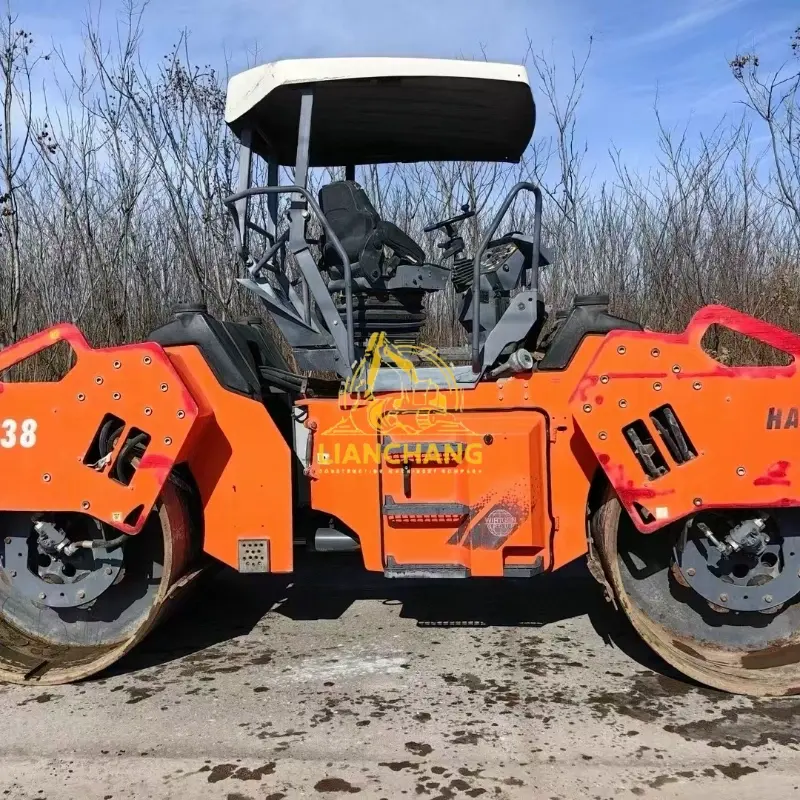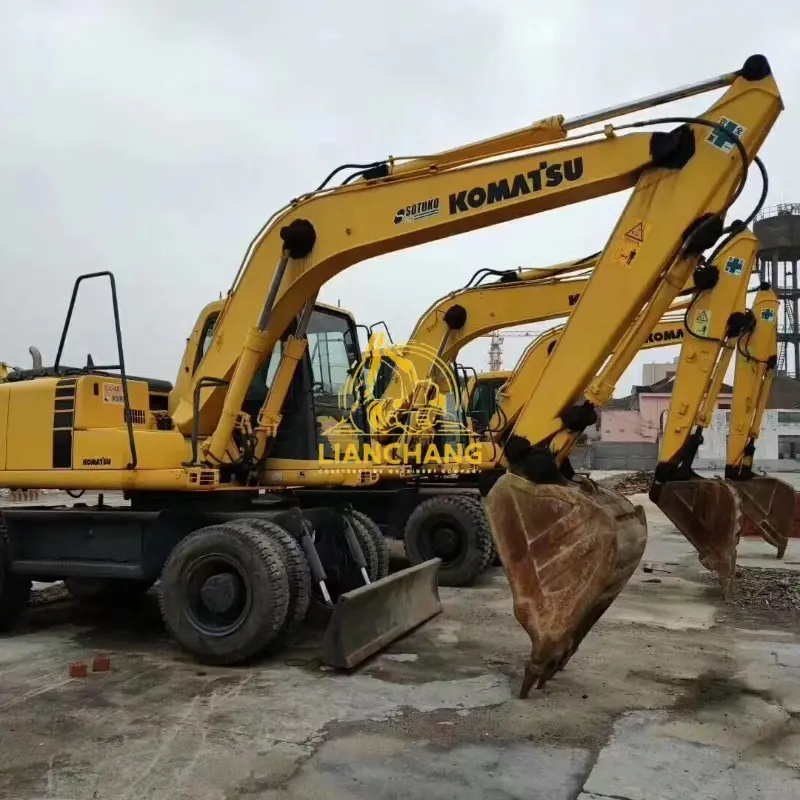Ultimate Guide to Using Used Road Rollers for Road Compaction and Soil Treatment
Release time: 2025-01-08
Understanding the Importance of Road Rollers in Construction
In road construction and infrastructure maintenance, road rollers are vital equipment. These heavy-duty machines apply pressure to compact soil, gravel, and asphalt, ensuring a stable and smooth surface for roads, highways, and other construction projects. For many construction companies, purchasing used road rollers can provide significant cost savings while delivering optimal performance. In this comprehensive guide, we explore how road rollers can be used for effective road compaction and soil treatment.

What is a Road Roller?
A road roller, also known as a compactor, is a construction vehicle designed to compress soil, gravel, or asphalt during road construction and maintenance. These machines come in various types, including vibratory rollers, static rollers, pneumatic rollers, and sheepsfoot rollers, each designed for specific compaction needs and soil types.
Why Choose Used Road Rollers?
For many businesses, opting for used road rollers rather than new ones offers multiple advantages:
- Cost-Effective Solution: Used road rollers are more affordable than brand-new models, allowing companies to allocate funds to other essential equipment or materials.
- Reduced Depreciation: New road rollers lose value quickly. Purchasing used equipment means you avoid the steep depreciation of a new machine.
- Proven Reliability: Well-maintained used road rollers often come with a proven performance record. By buying from reputable dealers, businesses can rely on their functionality.
- Sustainability: Choosing used road rollers contributes to environmental sustainability by promoting the recycling and extended use of machinery.
Types of Road Rollers for Compaction and Soil Treatment
When selecting a used road roller, it’s important to choose the right type for your project. Here’s a breakdown of the different kinds of rollers:
1. Vibratory Rollers
Vibratory rollers use vibrations to compact dense soil, gravel, and asphalt. These are ideal for final-stage compaction in road construction, ensuring a smooth and strong surface. Vibratory rollers help minimize the number of passes needed to achieve the desired compaction.
2. Static Rollers
Static rollers rely on their own weight for compaction and are ideal for lighter work like compacting sand and soft materials. They are typically used in the earlier stages of compaction.
3. Pneumatic Rollers
Equipped with rubber tires, pneumatic rollers provide even pressure distribution, making them ideal for compacting asphalt without damaging the surface. They are effective in creating smooth, stable layers.
4. Sheepsfoot Rollers
Sheepsfoot rollers are specifically designed for compacting cohesive soils like clay. Their unique foot-like protrusions provide excellent compaction, ensuring a strong foundation for roads and other structures.
How Road Rollers Work for Soil Compaction and Treatment
Soil compaction is a critical step in road construction to ensure a stable and durable foundation. Here’s how used road rollers help in this process:
1. Initial Compaction
In this phase, road rollers apply light pressure to the soil or material to reduce air voids and prepare the ground for further compaction. This helps establish a solid base for the roadbed.
2. Final Compaction
The final compaction stage involves applying higher pressure and using vibrations or additional rolling to increase the density of the material. This step ensures the surface is strong enough to withstand heavy traffic and environmental factors.
Benefits of Proper Soil Compaction in Construction
Soil compaction offers numerous advantages for the longevity and stability of construction projects:
- Increased Load-Bearing Capacity: Properly compacted soil has enhanced strength, allowing it to bear the weight of vehicles and structures.
- Improved Stability: Well-compacted soil resists shifting and settling, reducing the chances of cracks or structural failure over time.
- Reduced Water Seepage: Compaction minimizes the porosity of the soil, which helps prevent water absorption and keeps the road surface intact.
- Minimized Soil Erosion: Compacted soil is less prone to erosion caused by wind or rain, ensuring a longer-lasting road surface.
- Lower Maintenance Costs: Well-compacted soil reduces the need for repairs, lowering long-term maintenance costs for infrastructure.
Key Considerations When Buying a Used Road Roller
When purchasing a good performance used road roller, there are several factors to consider to ensure you get the best deal:
- Age and Condition: Check the machine’s age and condition. Well-maintained equipment, even if slightly older, can still be a valuable asset for your construction projects.
- Brand and Model: Opt for reputable brands like Caterpillar, Volvo, or Bomag, known for their reliability and durability.
- Hours of Operation: A road roller with fewer operating hours is less likely to need repairs and will provide more reliable service.
- Maintenance History: Always request a detailed maintenance history to understand the roller’s upkeep and any potential issues.
- Price Comparison: Compare prices for similar models to ensure you’re getting the best value for your investment.
Making the Most of Used Road Rollers for Compaction
Used road rollers are an excellent choice for construction companies looking to optimize costs without sacrificing quality. Whether you need a vibratory roller, static roller, pneumatic roller, or sheep foot roller, understanding their applications and benefits is essential for making the right purchase. By choosing a well-maintained used roller, you can ensure that your construction projects meet high standards of quality, stability, and cost-effectiveness.


